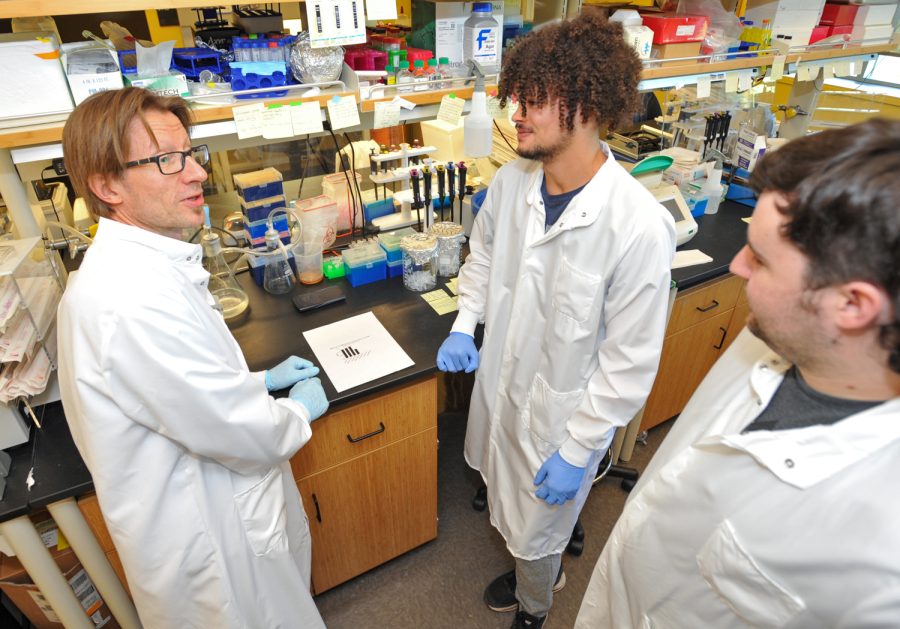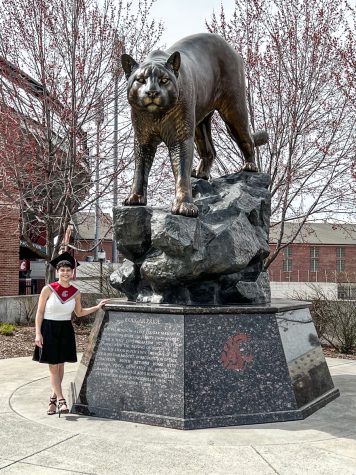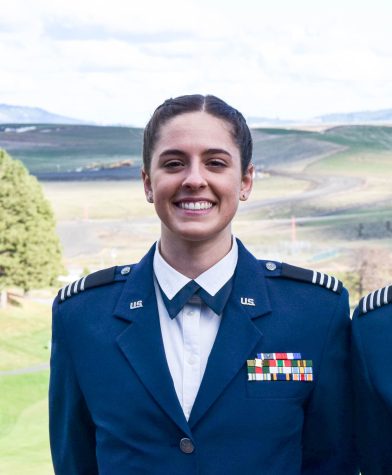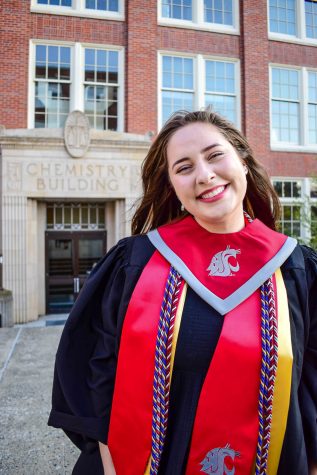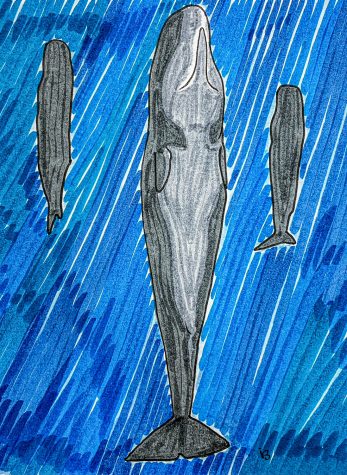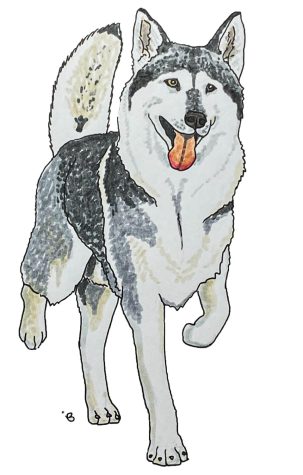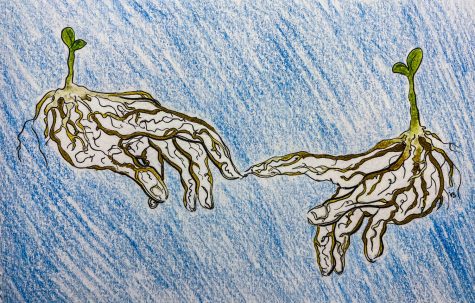MARC-WSU enters second year of supporting diverse voices in STEM
Program covers 60% of tuition costs for students; applications open until March
(From left to right) Dr. Anders Omsland, Tyrus Adrian Thomas and doctorate student Cameron Mandel discuss their research in the Anders lab for the Paul G. Allen School for Global Health.
July 21, 2022
By the end of August, four students from underrepresented backgrounds will be accepted into a STEM program offering financial support and preparation for doctorate degrees.
The federal government established the Maximizing Access to Research Careers program in the 1970s. MARC-WSU, which began last year, funds college juniors and seniors in STEM who are interested in biomedical research, said Mary Sánchez Lanier, School of Molecular Biosciences professor and Division of Academic Engagement and Student Achievement assistant vice provost.
The program is funded by a five-year grant from the National Institutes of Health, according to a Daily Evergreen article.
MARC-WSU covers 60% of tuition costs for each year in the program, around $13,000 for the academic year, Sánchez Lanier said.
“If we want to have a country that supports the health of individuals from all walks of life, the way to do that is to have individuals from all walks of life doing research that leads to cures and impacts,” she said.
She said the program also aims to include more diverse voices in STEM to solve problems and challenges.
“We do not want to leave anybody behind,” Sánchez Lanier said. “When you have all people participating, there [are] more ideas and possibilities nobody has ever thought of before. It gives more voices with varied backgrounds to solve our problems and challenges.”
The MARC-WSU program has a total of eight students per year, four newly accepted juniors and four returning seniors. The program also accepts fifth-year students entering their last year, she said.
The program accepted four students during the 2021-22 school year. One of these students was junior microbiology major Tyrus Adrian Thomas, who is researching the intracellular parasite Chlamydia trachomatis, which causes Chlamydia.
He is focusing on the tricarboxylic acid cycle, the source of energy for bacteria. Thomas is also researching the enzymes missing in the cycle and hopes to determine when the proteins are missing and if the process is a good evolutionary step, he said.
Thomas said he chose to pursue microbiology after having a microbiology internship and is considering working in clinical microbiology after graduate school. He plans to pursue a master’s degree and work in a lab after graduating from WSU.
“I joined the MARC program because it is for those who are underrepresented in sciences, and I qualify for that,” he said. “I thought it would be a good experience [to] learn what it takes to [attend] graduate school and gain lab experience because that is very important in graduate school.”
Thomas said the MARC-WSU program gave him insight and the opportunity to learn about concepts in his career field. The program also gave him financial support, experience and knowledge.
“Overall, I learned so much and am thankful for this opportunity of being in a lab for the summer,” he said.
To apply for MARC-WSU, Sánchez Lanier said students submit letters of recommendation and a curriculum vitae — a detailed history of professional and educational experiences — or resumé with their application.
The application is open to students approaching their junior year. Students can visit the MARC-WSU website to apply and find more information.
Students can qualify for MARC if they are minoritized or have underrepresented minority backgrounds, have a significant disability that affects life activity or come from a disadvantaged background and meet at least two of the eight criteria, Sánchez Lanier said.
She said underrepresented or minoritized backgrounds include African American, Latinx, Native American, Alaska Native, Native Hawaiian or Pacific Islander students.
Students can also qualify if they have a significant disability that affects life activity, such as visual, hearing and other disabilities listed on the MARC-WSU website, Sánchez Lanier said.
She said students in the MARC-WSU program attend national meetings of their choice and present their research. The program encourages students to attend the Annual Biomedical Research Conference for Minoritized Students. The conference has around 5,000 students and hosts a graduate school fair with more than 300 universities across the country.
“Students have the chance to visit all these different booths and talk to them about opportunities for graduate school,” Sánchez Lanier said. “[They can also] learn about summer programs if they want to go somewhere else between their junior and senior year and do research, not at WSU but some other location.”
Thomas and Sánchez Lanier encourage students to apply for the next school year. The application is open until March 15, 2023, Sánchez Lanier said.

